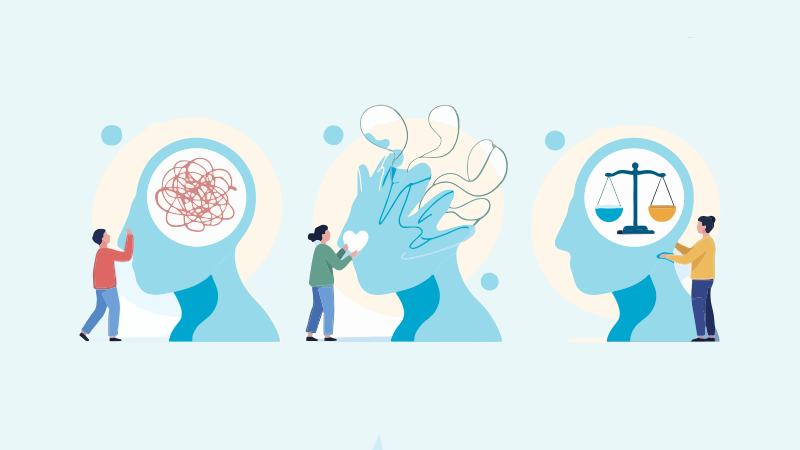
As leaders in the administrative training industry, we often highlight technical expertise, industry certifications, and high productivity. While these hard skills are important, it's the frequently underestimated soft skills—what I refer to as Significant Power Skills—that truly influence an individual's career trajectory, effectiveness, and impact on others.
For over three decades, I’ve trained administrative professionals and business leaders across the globe. I’ve seen firsthand what sets apart those who thrive in fast-paced, high-demand environments: strong interpersonal skills, emotional intelligence, adaptability, and the ability to communicate with grace and clarity. These are not “nice-to-have” attributes—they are mission-critical for modern professionals.
Soft skills encompass personal traits and behaviors that facilitate harmonious and productive interactions with others. While hard skills may help you secure a position, soft skills are what ensure your longevity and advancement in that role.
Some of the most sought-after soft skills today include:
The workplace is a human ecosystem. At its core are relationships — those we share with colleagues, clients, attorneys, and teams. When these relationships are strong, productivity flourishes. When they break down, so does everything else.
While all soft skills contribute to professional success, a few stand out as particularly transformative in today’s workplace. Let’s explore three in greater depth:
Emotional intelligence involves recognizing, understanding, and managing emotions—both your own and those of others. It encompasses self-awareness, empathy, and emotional regulation. Professionals with high EQ respond to challenges with composure and compassion, recognizing stress in colleagues and choosing responses that defuse tension.
Action Tip: At the end of each workday, reflect on a situation that triggered you. Ask: What was I feeling? Why? How could I respond differently next time? This practice builds self-awareness and improves your emotional agility over time.
Active listening goes beyond merely hearing words; it requires full engagement, patience, and the discipline to avoid interruptions. It involves tuning into the speaker’s words, tone, and body language. When you listen actively, people feel valued and respected.
Action Tip: In your next one-on-one, aim to repeat back key phrases or summarize what you heard before responding. This small shift demonstrates attentiveness and improves clarity on both sides.
Conflict is natural, but how we handle it makes all the difference. Professionals with strong conflict resolution skills approach disagreement with curiosity, not judgment. They ask questions, seek common ground, and focus on problem-solving rather than assigning blame. These individuals are often seen as peacemakers, facilitators, and steady hands during turbulent times.
Action Tip: When conflict arises, try the “Yes, and…” technique. Acknowledge the other person’s perspective before adding your own. For example: “I see why this deadline is stressful—and I think we can reprioritize together.”
Let’s face it: we’re no longer in the world of one-size-fits-all roles or predictable 9-to-5 schedules. Remote work, hybrid teams, global collaboration, and technological shifts have redefined how we connect and communicate.
In this new era, soft skills are no longer optional—they’re foundational. Here’s why:
While AI and automation can handle routine tasks, they cannot replicate human connection. No software can replace the empathy shown during a difficult conversation or the diplomacy required to manage competing priorities with poise.
Miscommunication is one of the most costly and frustrating problems in any organization. Soft skills like clear articulation, active listening, and non-defensive dialogue help teams align faster and avoid unnecessary friction.
The pace of change today is relentless. Professionals who are adaptable and open to new ideas not only survive, but thrive. Those who resist change or lack the soft skills to navigate uncertainty often fall behind.
Whether you lead a department or support a team, your influence stems from how you carry yourself.
These qualities shape your professional reputation more than any job title ever will.
A few years ago, I coached an outstanding administrative professional named Mia. On paper, she had impressive credentials—project management certification, technical skills, and analytical prowess. However, her executive hesitated to trust her with high-level meetings and sensitive decisions.
Through our sessions, it became evident that Mia's challenge was not competence, but confidence. She seldom spoke up in meetings and avoided initiating conversations, assuming others would recognize her capabilities.
We focused on enhancing her communication style, asserting her presence, and developing her emotional intelligence. Within three months, her executive began entrusting her with leading special projects and inviting her to strategic discussions. Mia didn’t acquire new credentials; she cultivated powerful soft skills that propelled her career forward.
Organizations that invest in soft skills training see tangible results:
Soft skills are not just personal development—they’re business development. They fuel cultures where trust is high, performance is elevated, and people bring their best selves to work.
Soft skills aren’t something you’re born with or without. They can be developed, refined, and elevated at any stage of your career.
Here are a few strategies to begin:
Like any muscle, soft skills grow through consistent use and deliberate practice. Here are six more ways to sharpen your interpersonal edge and increase your workplace impact:
At Office Dynamics International, we’ve long believed that soft skills are anything but “soft.” In fact, we believe they are significant. That’s why we created the Significant Power Skills Series—a unique learning experience designed specifically for today’s professionals who want to deepen their influence, sharpen their interpersonal strengths, and lead with confidence.
Whether you're an assistant, a team leader, or someone looking to grow into a leadership role, this series delivers transformative tools for real-world situations. It covers emotional intelligence, communication mastery, and conflict resolution—critical skills for anyone who wants to be a driving force in their organization.
We call them Power Skills because that’s exactly what they are—the power to build relationships, influence outcomes, and navigate the human side of work with excellence.

Joan Burge
Founder & CEO
Office Dynamics International
Joan Burge is known as the pioneer of the administrative training industry. Joan is an accomplished author, professional speaker, corporate trainer, and coach. After working in the administrative profession for 20 years, Joan founded Office Dynamics International in 1990, inspiring excellence in the administrative profession. Since then, ODI has grown into a global industry leader, offering a broad range of training and coaching solutions for administrative assistants and their executives. Joan has been passionate about the administrative profession for 50 years. She eats, breathes, and lives to improve the quality of life and education for assistants at every level worldwide.



